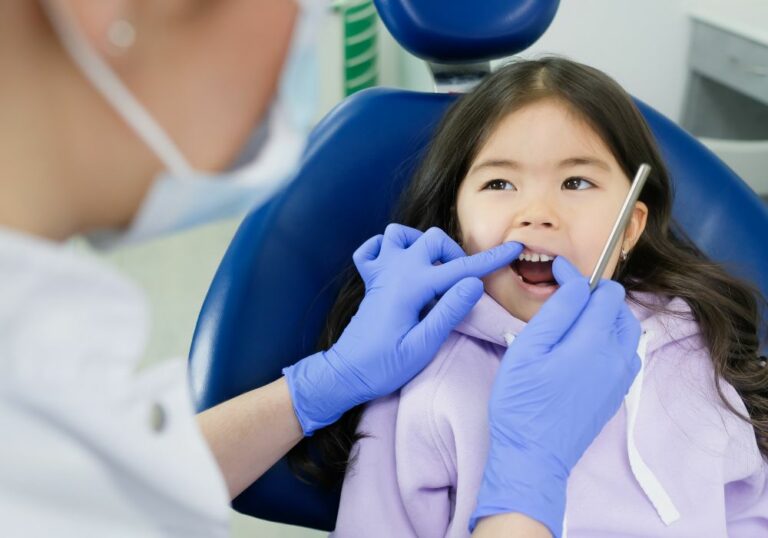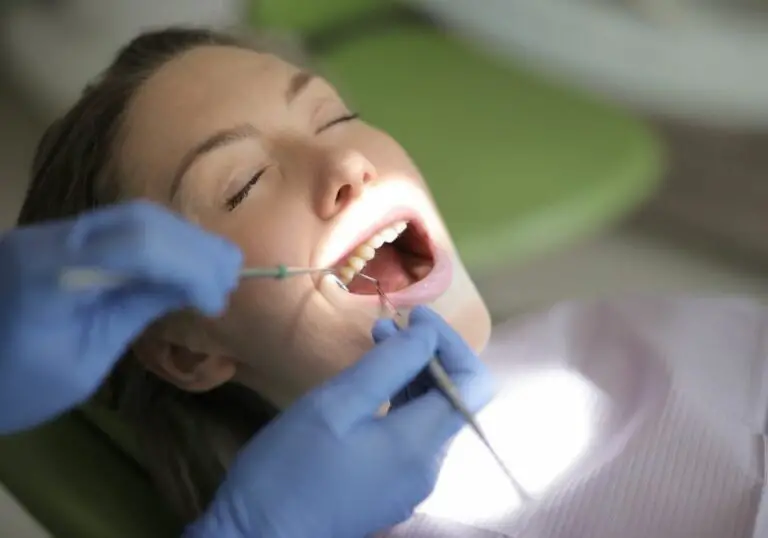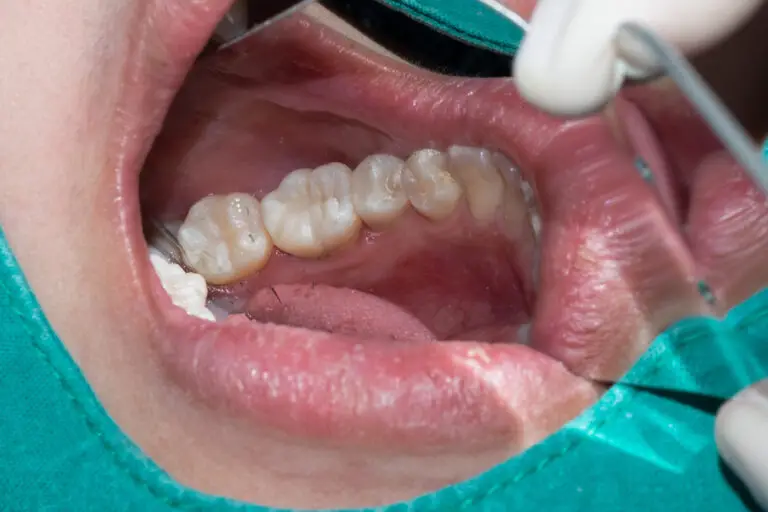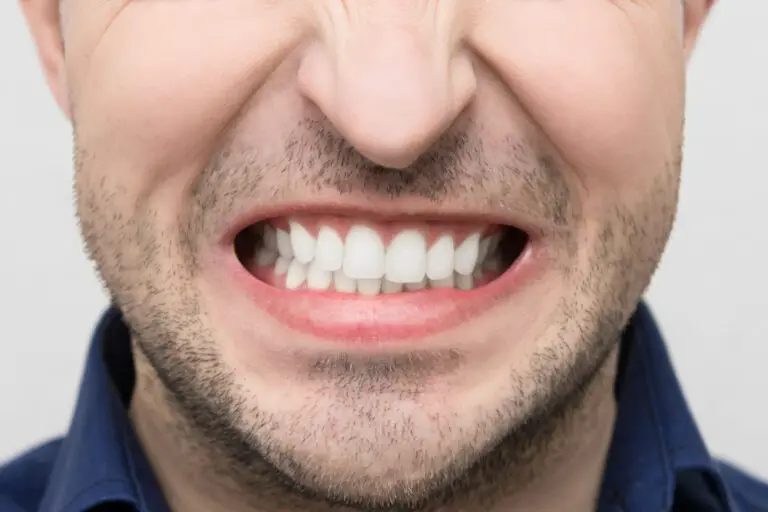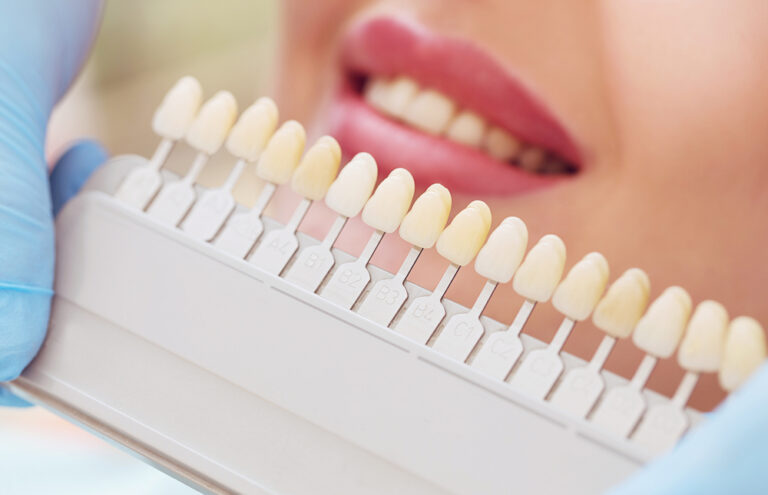Do you ever wonder how many teeth you have? The answer may not be as simple as you think. While a full set of adult teeth typically consists of 32 teeth, including wisdom teeth, many people have fewer teeth than this. In fact, it’s not uncommon for adults to have only 28 teeth.
If you’re missing teeth, you may be wondering if this is normal. The truth is, the number of teeth you have can depend on a few factors, including age and whether you’ve had any teeth removed or damaged. While some people naturally have fewer teeth than others, missing teeth can also be a result of dental issues such as decay or injury.
In this article, we’ll explore the topic of how many teeth adults have, including the different types of teeth and their functions. We’ll also discuss why some people may have fewer teeth than others and what you can do if you’re missing teeth. So, if you’re curious about your dental health and the number of teeth you have, keep reading to find out more.
Understanding Teeth Count
As an adult, you should have a total of 32 teeth, including four wisdom teeth. However, some people may have fewer teeth due to tooth decay, injuries, or other dental problems. Here’s a breakdown of the teeth count and their locations:
- Upper right teeth: 8
- Upper left teeth: 8
- Lower right teeth: 8
- Lower left teeth: 8
The teeth are numbered from 1 to 32, starting from the upper right molar (1) to the lower left molar (32). Each tooth has a specific name and function, as shown in the table below:
| Tooth Number | Tooth Name | Function |
|---|---|---|
| 1, 16 | First molar | Grinding |
| 2, 15 | Second molar | Grinding |
| 3, 14 | Third molar | Grinding |
| 4, 13 | Second premolar | Chewing |
| 5, 12 | First premolar | Chewing |
| 6, 11 | Canine | Biting and tearing |
| 7, 8 | Lateral incisor | Cutting |
| 9, 10 | Central incisor | Cutting |
The teeth are divided into four quadrants, with each quadrant having two incisors, one canine, two premolars, and three molars. The upper teeth are numbered from 1 to 16, while the lower teeth are numbered from 17 to 32.
It’s important to take care of your teeth to prevent tooth decay, gum disease, and other dental problems. Regular brushing, flossing, and dental checkups can help keep your teeth healthy and strong. If you have any dental problems, it’s best to seek professional help from a dentist.
The Role of 28 Teeth
As an adult, you may have 28 teeth instead of the typical 32. This is because you may not have developed your wisdom teeth or had them removed. But what is the role of these 28 teeth?
Your teeth play a crucial role in your overall health. They allow you to chew and break down food, making it easier for your body to digest and absorb nutrients. Additionally, your teeth help you speak properly and give you a confident smile.
Out of the 28 teeth, you have eight incisors, which are located in the front of your mouth and are used for biting and cutting food. Four canines are located next to the incisors and are used for tearing and grasping food. The eight premolars are located between the canines and molars and are used for grinding and crushing food. Finally, the eight molars, which include the wisdom teeth, are located at the back of your mouth and are used for grinding and chewing food.
While having fewer teeth may not seem like a big deal, it can actually have a significant impact on your oral health. Missing teeth can cause your remaining teeth to shift, leading to bite problems and even more tooth loss. It can also affect your ability to chew and speak properly, leading to digestive issues and social anxiety.
In conclusion, your 28 teeth play a vital role in your overall health and well-being. It’s important to take care of them through proper oral hygiene and regular dental check-ups to ensure they continue to serve you well.
Why Some People Have More or Less Than 28 Teeth?
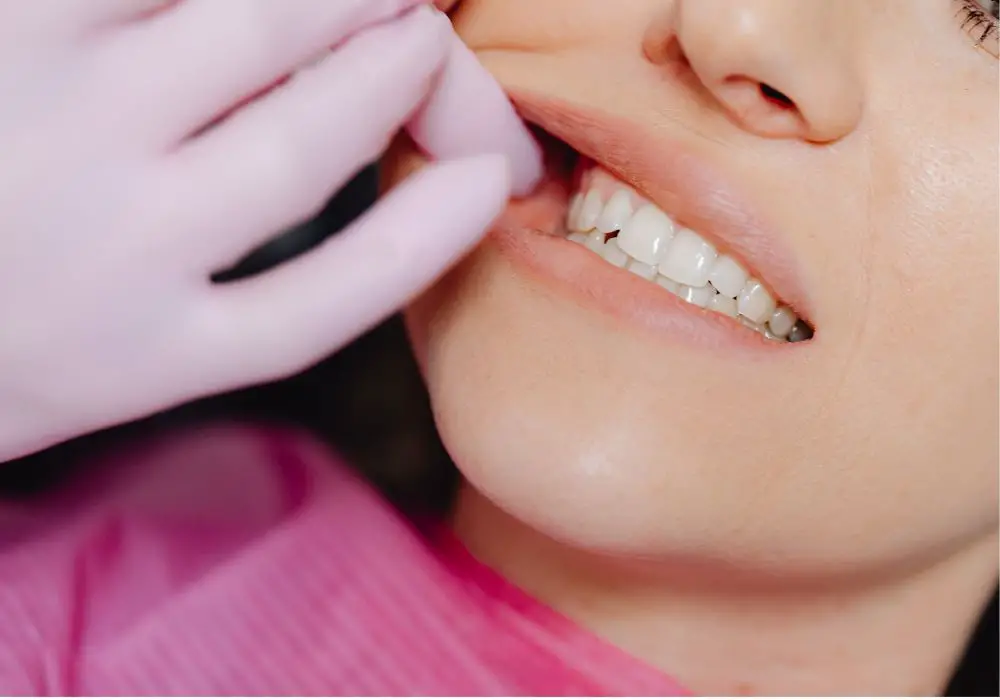
If you’ve ever wondered why some people have more or less than 28 teeth, there are a few possible reasons. Here are two factors that can affect the number of teeth you have:
Genetic Factors
The number of teeth you have can be determined by genetics. Some people may have a genetic mutation that causes them to have more or fewer teeth than the average person. For example, some people may have extra teeth, known as supernumerary teeth, while others may be missing teeth altogether.
Dental Conditions
Certain dental conditions can also affect the number of teeth you have. For example, if you have a condition called hypodontia, you may be missing one or more teeth. This condition is usually hereditary and can affect both baby and permanent teeth.
On the other hand, if you have a condition called hyperdontia, you may have extra teeth. This condition is less common than hypodontia, but it can still occur.
Other dental conditions that can affect the number of teeth you have include impacted teeth and tooth impaction. Impacted teeth are teeth that are stuck in the jawbone and cannot emerge properly. Tooth impaction occurs when a tooth fails to emerge from the gumline.
In conclusion, there are several reasons why some people have more or fewer teeth than the average person. Genetic factors and dental conditions can both play a role in the number of teeth you have. If you have concerns about the number of teeth you have, you should speak to your dentist. They can help you understand your dental health and recommend any necessary treatments.
Importance of Maintaining Oral Health
Taking care of your teeth and gums is essential for maintaining good oral health. Poor oral hygiene can lead to a variety of dental problems, including tooth decay, gum disease, and tooth loss. Here are some tips to help you maintain good oral health:
Preventing Tooth Loss
Tooth loss can occur due to a variety of factors, including gum disease, tooth decay, and injury. However, there are steps you can take to help prevent tooth loss:
- Brush your teeth twice a day with fluoride toothpaste.
- Floss daily to remove plaque and food particles from between your teeth.
- Visit your dentist regularly for checkups and cleanings.
- Avoid smoking and excessive alcohol consumption, as they can increase your risk of gum disease and tooth loss.
Proper Dental Hygiene
Proper dental hygiene is essential for maintaining good oral health. Here are some tips to help you maintain proper dental hygiene:
- Brush your teeth twice a day with fluoride toothpaste.
- Floss daily to remove plaque and food particles from between your teeth.
- Use mouthwash to help kill bacteria and freshen your breath.
- Eat a healthy diet that is low in sugar and high in nutrients.
- Limit your intake of sugary and acidic foods and drinks, as they can erode your tooth enamel.
By following these tips, you can help prevent dental problems and maintain good oral health. Remember to visit your dentist regularly for checkups and cleanings, and to address any dental problems as soon as they arise.
The Impact of Missing Teeth
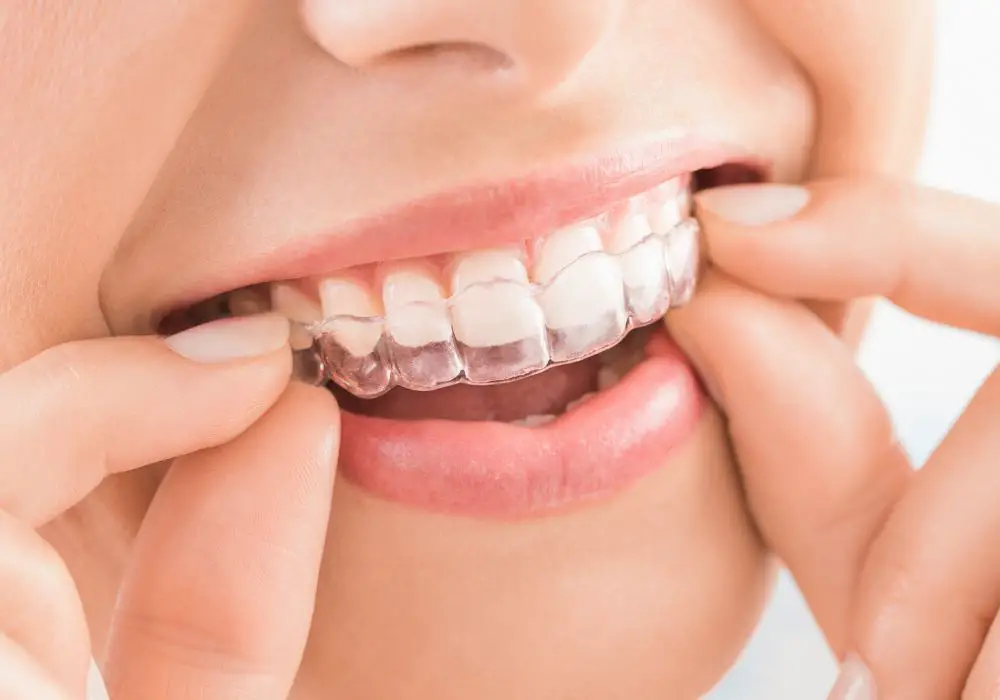
Losing teeth can have a significant impact on your daily life. Here are some of the ways missing teeth can affect you:
Speech Difficulties
Missing teeth can make it difficult to speak clearly. Your teeth play an essential role in forming sounds, and if you’re missing teeth, you may find it challenging to pronounce certain words or sounds. This can be especially true for sounds that require the use of your front teeth, like ‘f,’ ‘v,’ ‘s,’ and ‘th.’
Eating Challenges
Missing teeth can also make it challenging to eat certain foods. If you’re missing molars, you may have trouble chewing tough or crunchy foods, like meat or raw vegetables. Additionally, if you’re missing front teeth, you may feel self-conscious about eating in public or social situations.
If you’re experiencing speech difficulties or eating challenges due to missing teeth, there are several treatment options available to you. Dentures, bridges, and dental implants are all effective ways to replace missing teeth and restore your ability to speak and eat with confidence.
It’s essential to address missing teeth promptly, as leaving them untreated can lead to further oral health problems, including bone loss, gum disease, and tooth decay. If you’re unsure of the best treatment option for you, consult with your dentist to discuss your options and find a solution that works best for your needs.
Dental Solutions for Missing Teeth
If you’re missing teeth, you may be wondering what your options are for restoring your smile and improving your dental health. Fortunately, there are several dental solutions available, each with its own benefits and considerations.
Dental Implants
Dental implants are a popular solution for replacing missing teeth. They involve the placement of a small titanium post into the jawbone, which serves as a replacement for the tooth root. Once the implant has been placed, a crown or other prosthetic tooth can be attached to it, creating a natural-looking and functional replacement tooth.
Dental implants offer several benefits, including:
- Long-lasting durability
- Improved speech and chewing ability
- Natural-looking appearance
- Preserved jawbone density
However, dental implants may not be a suitable option for everyone. They require a healthy jawbone and gums, and the implant process can take several months to complete.
Bridges and Dentures
Bridges and dentures are another option for replacing missing teeth. Bridges are prosthetic teeth that are attached to adjacent teeth, while dentures are removable prosthetic teeth that can replace multiple missing teeth.
Bridges and dentures offer several benefits, including:
- Lower cost compared to dental implants
- Shorter treatment time
- Can be a suitable option for those with less healthy jawbones or gums
However, bridges and dentures may not be as durable as dental implants, and they may require more maintenance and replacement over time.
Ultimately, the best dental solution for missing teeth will depend on your individual needs and preferences. Consult with your dentist to determine which option is right for you.
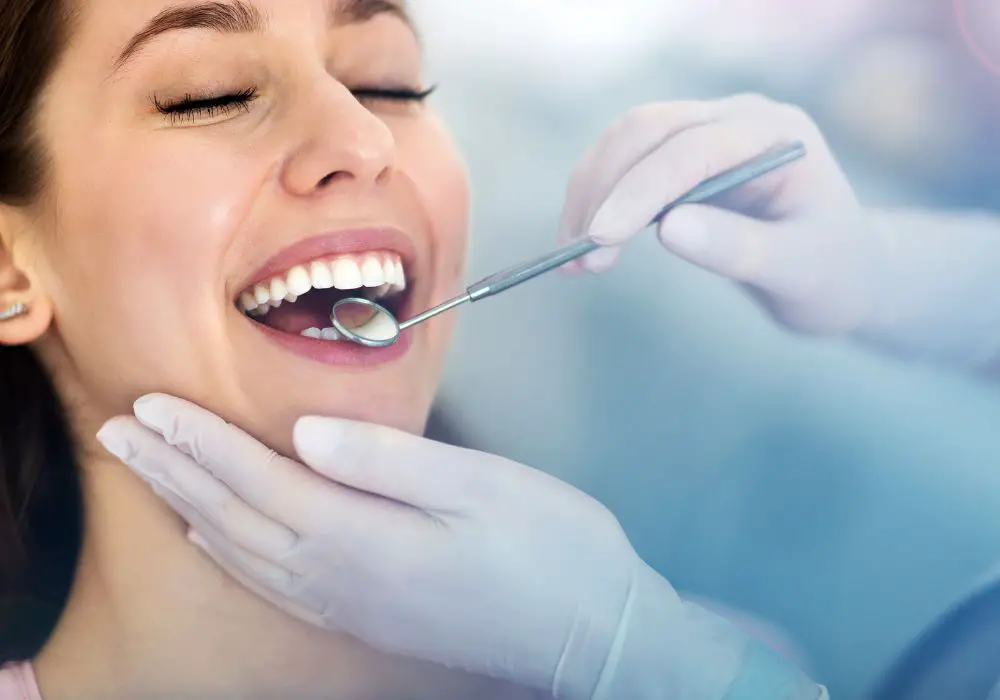
Frequently Asked Questions
How many teeth should a person have?
Most adults have 32 permanent teeth, including four wisdom teeth. However, some people may have fewer teeth naturally, and that is perfectly normal.
Is it common to have less than 32 teeth?
Yes, it is common for some people to have less than 32 teeth naturally. Some people may be missing one or more teeth due to tooth loss, tooth agenesis, or having extra teeth.
What factors can affect the number of teeth a person has?
The number of teeth a person has can be affected by various factors, such as genetics, oral hygiene, diet, and dental care. For example, poor oral hygiene and a diet high in sugar and carbohydrates can increase the risk of tooth decay and tooth loss.
At what age do most people have a full set of teeth?
Most adults have a full set of permanent teeth by the age of 21. However, the timing of tooth eruption can vary from person to person.
Can missing teeth be replaced?
Yes, missing teeth can be replaced with various dental treatments, such as dental implants, dentures, and bridges. It is important to consult with a dental professional to determine the best treatment option for your specific needs.
How can I maintain good oral health with missing teeth?
Maintaining good oral hygiene is essential for preventing further tooth loss and maintaining healthy gums. Brushing twice a day, flossing daily, and visiting a dental professional regularly for cleanings and check-ups are important for maintaining good oral health.


